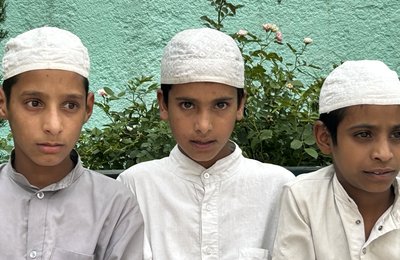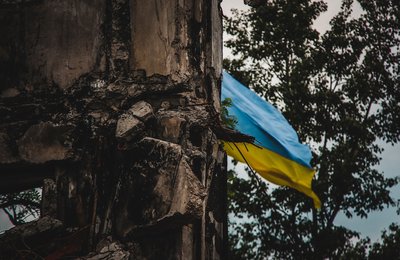 Syrians fleeing the conflict wait board a train in Vienna. Image credit: Josh Zakary
Syrians fleeing the conflict wait board a train in Vienna. Image credit: Josh ZakaryThe argument commonly put forth is that “migrant” denotes an individual who chooses to move countries. Whereas, “refugee” refers to someone forcibly displaced outside their national borders. What seems like a debate in semantics is actually critically important in defining international policies. The United Nations and countries abiding by commitments to the Universal Declaration of Human Rights and 1951 Refugee Convention are required by international law to provide care and safe haven to any person claiming refugee status. When countries instead use the misnomer “migrants” they are no longer accountable for such commitments.
Beyond legal aspects, the term “migrant” also minimizes the gravity of a refugee crisis. It deters media attention and public support necessary to push governments to respond. The word facilitates complacency of the international community in moments when life-saving assistance is most dire.
Social media campaigns and social justice-minded media outlets have been all over this issue. With the recent exposure of the Syrian crisis in Europe, a flood of articles has been making the rounds in newsfeeds. However, are celebrities and laptop activists speaking for a community of people who may respond differently? Are they silencing the voices of those they seek to help? The answers to these questions are complex but it is well known in the international development community that the best intentions of western activists sometimes do more harm than good. To the credit of activists, excellent points have been made.
Others have voiced concern over the differing responses to the terms “refugee” and “internally displaced person” (IDP). Like a refugee, an IDP has also been forcibly displaced from their home, differing only by seeking refuge within their country rather than beyond. The international community makes no commitments to IDPs, while refugees are able to activate long-standing multi-lateral agreements for help.
During a trip to Turkey, a Syrian man expressed the problems of labeling and asked why all are not treated with the same respect, care, and dignity? After all, an IDP may be able to remain within the home country but often exists under greater threat in closer proximity to conflict.
Labeling has clearly become a problem for humanitarian aid and global responses to conflict. As evidenced, semantics play a critical role in the application of assistance to those in need. Yet solutions are complicated and the refugee-migrant debate must be considered beyond a simple binary of right and wrong. The impact of these terms needs to be expressed by those displaced by crisis—how they perceive themselves should not be solely defined by the international community.
As the war on words continues, the voices of those displaced must be incorporated into the conversation. When governments, aid agencies, and activists speak for crisis survivors, they must also speak with them.









